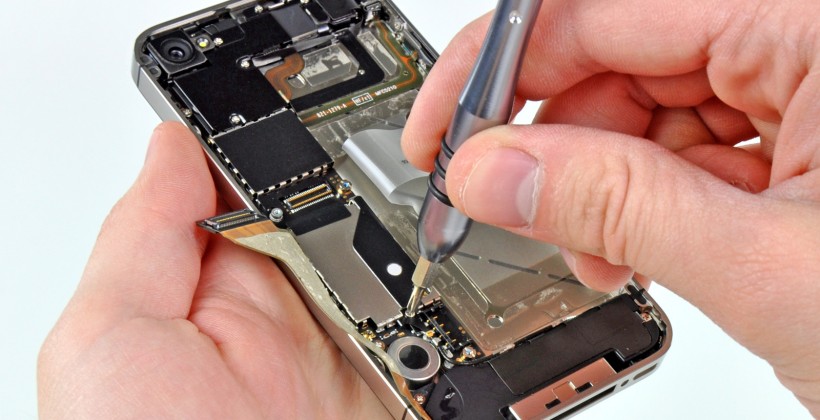ARGUING FOR THE (REPAIRERS) FUNDIS
In this fast paced world of ever evolving tech and
interconnectivity of everything that uses electricity from home appliances to
vehicles, it has struck me on where it’ll leave the fundis – people in the field of repairing - of this age. Having
been raised by a fundi of sorts and having engaged in the technical art myself,
this urge to regurgitate some info dump on the matter came naturally.
The skill of reparation/restoration is a key clean and
honest income earner and it needs to be defended for the protection of livelihoods,
consumers and the environment.
WHAT IS THE RIGHT TO REPAIR?
Well this is the ability of us having the free option to
have anything we’ve purchased-own- to be repaired by anybody we want to –other than
the manufacturer- should the need for repairs arise. On this post we’ll be
focusing mostly on electronic gadgets and how players in that industry are
slowly killing off the small-scale third party repair businesses due to their exploitative
business strategies.
A great example of an exploitative business strategy is
achieved by locking consumers of their products with bloatware, limited
compatibility accessories and online ecosystems that have a consumer continuously
forking out cash to the same manufacturer after having bought their brand of
phone, laptop or TV or any other ‘smart’/‘i’ thing that’s in our homes or
offices.
Another example is planned obsolescence where you find after
using something you had spent money on and used as carefully as possible for a
certain number of years suddenly just stops functioning well or lags or gets
incompatible because some guys somewhere have churned out some system
update which your dinosaur of a device cannot
handle anymore or the chipsets on your device just break and you have to buy a
shiny new one mostly from the same manufacturer so that your data gets
seamlessly transferred to your new slave device. Yay for you!
Anyway, should any of these devices need a repair in the
interim, the manufacturers are really hesitant to allow you get them repaired
by that guy at that repair shop that you kinda trust because they’d rather have
you buy a new device from them to keep their gravy trains chugging along and
their shareholders patting their bellies.
ARGUMENTS AGAINST THE RIGHT TO REPAIR
TL;DR – We won’t have more money and we love money.
The manufacturers argue that having you enjoying the right
to take your broken electronic device to anybody else other than them for
repairs is going to hinder innovation. This is because most of the components
within these devices need to be given to third party manufacturers who’d in
turn churn out substandard stuff and also infringe on their IP- Intellectual
Property which they have invested billions attaining in their R&D- Research
and Development departments.
So them having to willingly have their Patented products
manufactured by third parties- with the risk of them having been reverse engineered
poorly. That in turn would take away the incentive from the manufacturers to be
more innovative.
They also prefer having you buy a new product from them
because even if they are to be forced by consumer protective legislation to
come up warranty extensions, they argue that it would add to the cost of a
product’s initial purchase or it would just make them have to shut down because
they’d be repairing broken stuff instead of selling more newer stuff.
"Usiwai amini fundi wa kiatu, nguo, furniture, ama wa electronincs!"
HOW TO SOLVE THAT
Just make it so the ability by small scale repair workshops
to have the right access to OEM –Original Equipment Manufacturer- components
much easier. This can be achieved by better legislation on the government’s
part and manufacturers controlling their greed of making more e-waste dumped
around. They’d also have access to a new market of their inner components just
as they already have an established market of their accessories. Also nobody
will be having exploding DIY batteries.
CLOSING THIS UP
As earlier stated, innovation these days is very dynamic and
electronic devices are getting more and more sci-fi alien-tech-looking, smaller
and components within them are even assembled microscopically. If a fundi of
the 1980s and 1990’s would time travel to today, they wouldn’t know the heads
or tails of it. This makes it hard to even repair today’s tech either
intentionally by the greedy manufacturers or just by nature of advancement
throughout history, this is the reality we have to live by.
Another reality we cannot equally disqualify is that
innovation breeds more innovation across the board and as the tech evolves so
does the technical know-how in the repairers ranks evolve. The necessity to get
one fed will naturally have one get the necessary skills required to repair
whatever tech they come up with.
They Kenya Consumer Protection department, Parliament and
Competition Authority of Kenya needs to look into protecting young Kenyans’ right
to repair in order to protect budding fundis’ jobs, the environment and the
consumer from unscrupulous big exploitative electronics manufacturer players.


